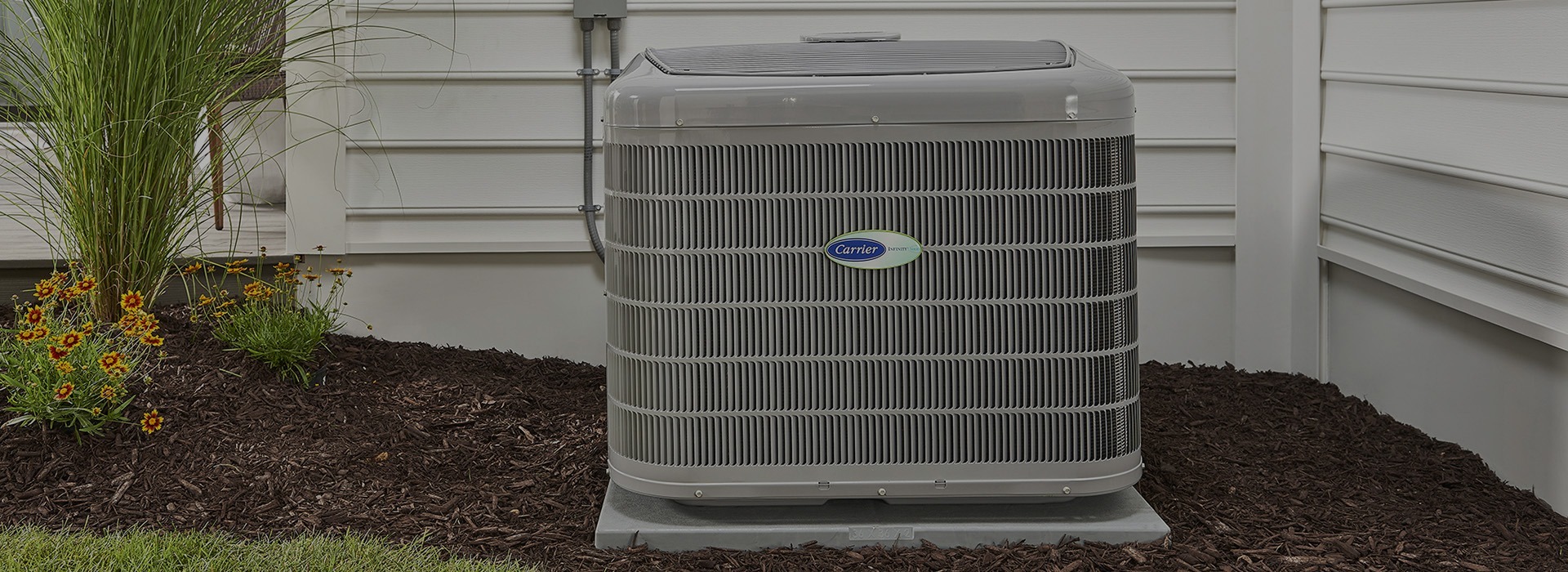Energy-Efficient Heating And Cooling Systems to Minimize Energy Expenses
As power expenses continue to increase, the value of energy-efficient cooling and heating systems becomes increasingly apparent. These systems not only guarantee considerable cost savings on utility costs but also contribute to an extra lasting future by minimizing energy consumption. With numerous alternatives readily available, including geothermal warmth pumps and ductless mini-splits, homeowner encounter a plethora of choices that can enhance convenience and air top quality. Comprehending the essential features and upkeep demands is vital to optimizing these benefits. What factors should be focused on when selecting the best system for your needs?
Advantages of Energy-Efficient A/c Systems
Energy-efficient cooling and heating systems supply various advantages that expand beyond simple cost financial savings. One significant benefit is the lowered ecological impact. By taking in much less energy, these systems add to reduce greenhouse gas emissions, assisting to deal with environment adjustment and promote sustainability. This lines up with increasing societal demands for environment-friendly methods in household and commercial settings.
Additionally, energy-efficient heating and cooling systems usually provide enhanced convenience levels. A number of these systems feature sophisticated innovation that enables far better temperature level control and boosted air top quality (DMAKS HVAC). This brings about a healthier interior setting, which is specifically vital for people with allergies or breathing problems
Additionally, investing in energy-efficient heating and cooling systems can boost residential property worth. As more consumers prioritize power effectiveness, homes and buildings geared up with these systems may attract greater bids in the property market.
Kinds Of Energy-Efficient Heating And Cooling Options
Just how can homeowners and businesses select one of the most ideal energy-efficient cooling and heating alternatives for their requirements? The market supplies a variety of energy-efficient heating and cooling systems, each designed to boost comfort while reducing power usage.
One option is the variable cooling agent flow (VRF) system, which efficiently controls the temperature in numerous zones within a structure. This system adapts its refrigerant flow to match the desired temperature, leading to significant energy financial savings.
One more popular option is geothermal warm pumps, which use the earth's steady temperature to warm and amazing areas. By transferring warm to and from the ground, these systems demonstrate remarkable effectiveness, particularly in modest environments.
Furthermore, ductless mini-split systems give an energy-efficient option for homes doing not have ductwork. These systems enable zone-specific home heating and air conditioning, lowering energy waste in empty areas.
Lastly, high-efficiency heating systems and a/c, with innovative SEER and AFUE scores, supply reputable climate control while consuming much less power than traditional designs. By reviewing these choices, home owners and businesses can pick a heating and cooling system customized to their details needs and energy effectiveness goals.
Key Functions to Think About

Following, check out the kind of compressor used in the system. DMAKS HVAC. Variable-speed compressors can readjust their output to match the home heating or cooling demand, resulting in boosted comfort and power savings contrasted to single-speed designs. In addition, search for systems outfitted with wise thermostats that click here now supply programmable setups and remote gain access to, enabling better control over power intake
Another vital feature is the system's air filtering capability. High-efficiency filters can boost interior air high quality and decrease energy intake by making sure the system operates successfully. Consider the type of refrigerant made use of; modern-day systems usually use environment-friendly cooling agents that have a reduced ecological impact.
Finally, make sure that the system works with zoning technology, which permits personalized temperature control in different areas of your home, boosting convenience while lessening energy use.
Tips for Choosing the Right System


Next, think about energy efficiency ratings, specifically the Seasonal Power Efficiency Ratio (SEER) for cooling down systems and the Yearly Fuel Utilization Efficiency (AFUE) for furnace. Greater scores suggest greater performance, which can cause considerable cost savings on utility expenses in time.
In addition, assess the kind of HVAC system that ideal suits your way of living and budget plan. Choices include central air, ductless mini-splits, and heat pumps, each with its very own set of advantages and downsides.
Don't overlook the value of proper installment and sizing; an improperly sized system can result in inadequacies and boosted wear. Lastly, seek advice from a professional cooling and heating professional to acquire expert suggestions customized to your home's special needs. This extensive technique will make certain that you select an energy-efficient a/c system that fulfills your needs and budget plan properly.
Maintenance for Ideal Performance
Once the best a/c system is in location, continuous upkeep comes to be key to guaranteeing ideal effectiveness and longevity. A properly maintained system operates much more effectively, resulting in lower energy usage and minimized utility expenses. Routine assessments and tune-ups need to be set up at the very least twice a year-- when before the cooling season and when before the home heating season.

Property owners need to likewise be watchful concerning checking their HVAC system's performance. Unusual noises, changing temperatures, or boosted power expenses can show underlying problems that call for immediate interest. By great post to read addressing these issues without delay, home owners can avoid pricey repairs and prolong the life-span of their systems.
Spending in a maintenance strategy with a qualified specialist not just boosts efficiency however also offers assurance, recognizing that the system is running at its best. DMAKS HVAC. Regular maintenance is consequently essential for sustaining energy effectiveness and reducing general functional prices
Verdict
To conclude, energy-efficient heating and cooling systems provide a viable service for decreasing utility expenses while improving comfort and air quality. By integrating sophisticated technologies and alternatives such as geothermal warmth pumps and ductless mini-splits, home proprietors can accomplish considerable energy cost savings and add to ecological sustainability. Mindful factor to consider of system attributes and recurring upkeep even more makes certain optimum efficiency, making energy-efficient systems a prudent investment for both economic and eco-friendly advantages.